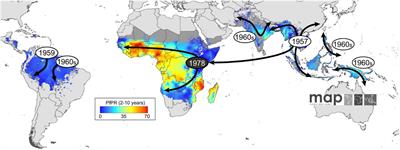EDITORIAL
Published on 10 Mar 2022
Editorial: Genetics of Apicomplexans and Apicomplexan-Related Parasitic Diseases
doi 10.3389/fgene.2022.875778
- 1,078 views
12k
Total downloads
52k
Total views and downloads
Select the journal/section where you want your idea to be submitted:
EDITORIAL
Published on 10 Mar 2022
ORIGINAL RESEARCH
Published on 10 Jan 2022

ORIGINAL RESEARCH
Published on 08 Dec 2021

ORIGINAL RESEARCH
Published on 19 Nov 2021

ORIGINAL RESEARCH
Published on 17 Nov 2021

REVIEW
Published on 15 Oct 2021

ORIGINAL RESEARCH
Published on 14 Oct 2021

ORIGINAL RESEARCH
Published on 09 Sep 2021

ORIGINAL RESEARCH
Published on 10 Aug 2021

ORIGINAL RESEARCH
Published on 05 Aug 2021

ORIGINAL RESEARCH
Published on 15 Jul 2021

REVIEW
Published on 25 Jun 2021


Frontiers in Microbiology
Evolutionary and Genomic MicrobiologyOffline